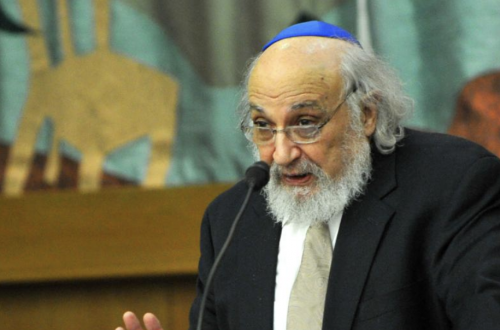The Modern Languages Association (MLA) has recently focused its attention on Israel, perhaps following the example of the American Studies Association, although they are only proposing to condemn, not boycott, Israel. Members are currently being invited to endorse a resolution
urging the “United States Department of State to contest Israel’s denials of entry to the West Bank by United States academics who have been invited to teach, confer, or do research at Palestinian universities.”
Take a look at this storify, compiled by John-Paul Pagano, about the way some academics have been discussing this issue on the MLA listserv.
Most direct is former Rutgers TA and Temple University Adjunct Assistant Professor of Italian Alessio Lerro, who offered this rationale for his support of the MLA resolution: “This resolution rightly targets only Israel given the humongous influence that Jewish scholars have in the decision making process of Academia in general.”+
Professor Lerro has made other problematic comments about Jews. On Facebook, he seemed to express skepticism about the figure of 6 million Jews murdered in the Holocaust.
Pagano links to a very interesting article on the same topic by Jonathan Marks. This paragraph is particularly telling.
The anti-Semitic tropes in these statements are not subtle. But even if they were, I wonder why the academic left, which is usually so attuned to the subtlety of racism and sexism, puts up such a high bar for anti-Semitism. Suddenly “But I said Zionist, not Jew”; or “I’m a Jew, so I can’t possibly be in league with haters of Jews”; or “Yes, I’m focusing on the Jewish state and no other state, but so what?”; or “Sure, I’m echoing standard anti-Semitic tropes, but they’re really applicable here” are incontrovertible arguments, and it becomes bad form to suggest that anti-Semitism is at work unless someone is screaming anti-Semitic slogans.
Returning to the listserv transcript – I wouldn’t have singled out the MLA’s resolution if it hadn’t been for the way the discussion attracted anti-semitic tropes. But I did like this contribution by Sarah Kelen:
A one-off resolution condemning Israel for making it difficult for U.S. citizens to teach in Palestinian universities implies that Israel’s policies do particular harm to global academic freedom. Meanwhile, U.S. colleges happily forge 21st century partnerships with the governments of China, the United Arab Emirates, and other nations that restrict the academic freedom of both faculty members and students.
This resolution is dangerous. It follows the argument of a partisan report to single out Israel without seeking a broader assessment of the political situation in Israel and Palestine, all while remaining silent on egregious violations of human rights and academic freedom around the world.

